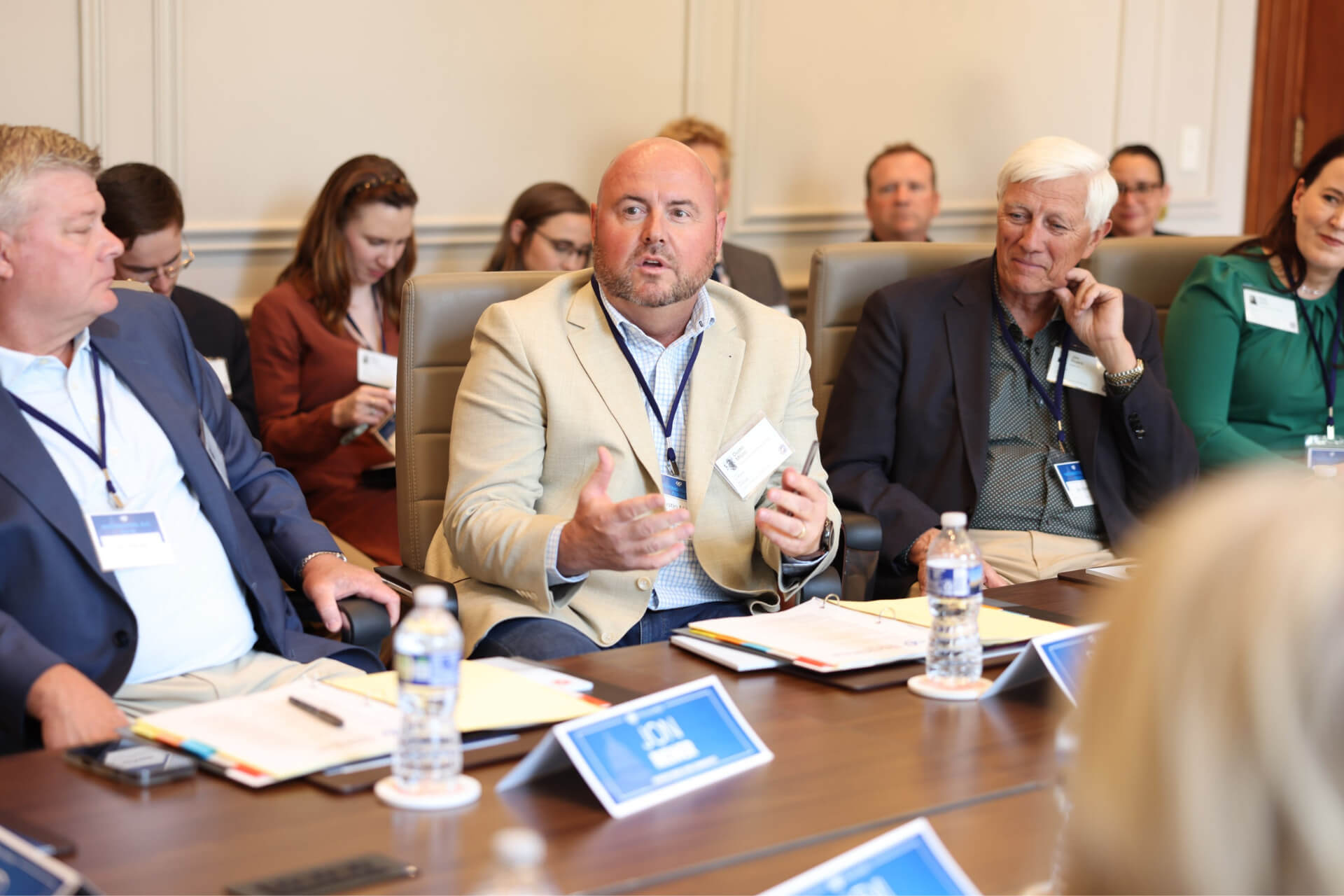07.09.25
Discussions in D.C. | Key Priorities from FMWF Business Leaders
By Cale Dunwoody, Vice President of Public Policy, FMWF Chamber

Dustin Mitzel, CEO of Happy Harry's Bottle Shops in Fargo and Grand Forks, voices his key priorities at the Washington, D.C., Fly-In.
Explore the key priorities FMWF business leaders brought to Washington, D.C.—from workforce and immigration to innovation and tax policy—and how these efforts aim to strengthen our regional economy.
What’s Keeping Business Leaders Up at Night—and What We’re Doing About It
What challenges are keeping business leaders up at night? And more importantly, what can be done to solve them?
That’s the mission 41 Chamber members carried to the nation’s capital during the recent Washington, D.C. Fly-In. Over three days, they met with members of Congress, federal agency officials, U.S. Chamber representatives, military leaders and Congressional staff to elevate the issues most critical to the businesses in our region.
Here’s what they brought to the table and why it matters to you:
Workforce and Talent Development
The problem: Open jobs outpace available talent.
The ask: Expand support for apprenticeships, short-term credentials and work-based learning. Strengthen efforts to develop, retain and attract a skilled workforce through both education and smart policy.
Immigration Reform
The problem: Workforce shortages are worsening by outdated immigration systems.
The ask: Advance meaningful immigration reform that addresses visa processing delays, supports high-skill and essential workforce needs, and creates pathways for international talent to contribute and remain in the U.S.
Education and Industry Alignment
The problem: Students need stronger connections between learning and career readiness.
The ask: Enhance career and technical education, expand access to dual credit opportunities and improve transitions from high school to higher ed and into the workforce.
Business, Entrepreneurship and Permitting
The problem: Red tape, permitting delays and limited access to capital slow growth.
The ask: Simplify federal regulations, streamline permitting processes, expand funding access and support underrepresented business owners to spark local innovation.
Innovation and the Future Economy
The problem: Breakthroughs in areas like agtech, sustainability and AI are outpacing policy.
The ask: Support forward-thinking innovation policy that enables new technologies, boosts U.S. competitiveness and prepares the next generation of innovators and producers.
Tariffs and Global Competitiveness
The problem: Tariff uncertainty puts industries like manufacturing, agriculture and others at a competitive disadvantage.
The ask: Modernize trade policy to protect regional industries, promote predictability and ensure U.S. businesses can compete globally.
Tax Policy
The problem: Complex and unpredictable tax environments create obstacles for growth.
The ask: Advance a pro-growth tax policy that supports reinvestment, innovation and long-term business success.
And that’s not all. Housing, child care and national security also took the spotlight, each one a critical piece of our region’s economic future.
What’s next?
These conversations were just the start. In the weeks ahead, we’ll continue to share insights, takeaways and next steps from our D.C. Fly-In, and how your voice continues to shape advocacy efforts for a stronger, more competitive FMWF region.
Want to stay informed or get involved?
Sign up for our advocacy updates, explore upcoming events or connect with our policy team to make your voice heard.
SHARE
More Stories
Upcoming Events
Subscribe to email newsletters
